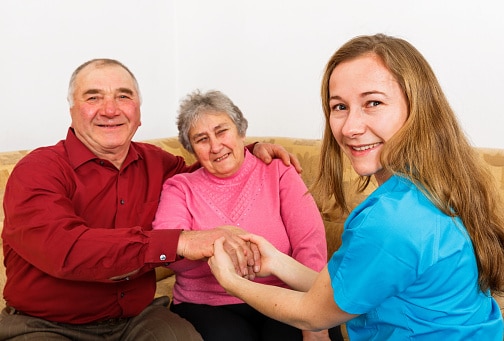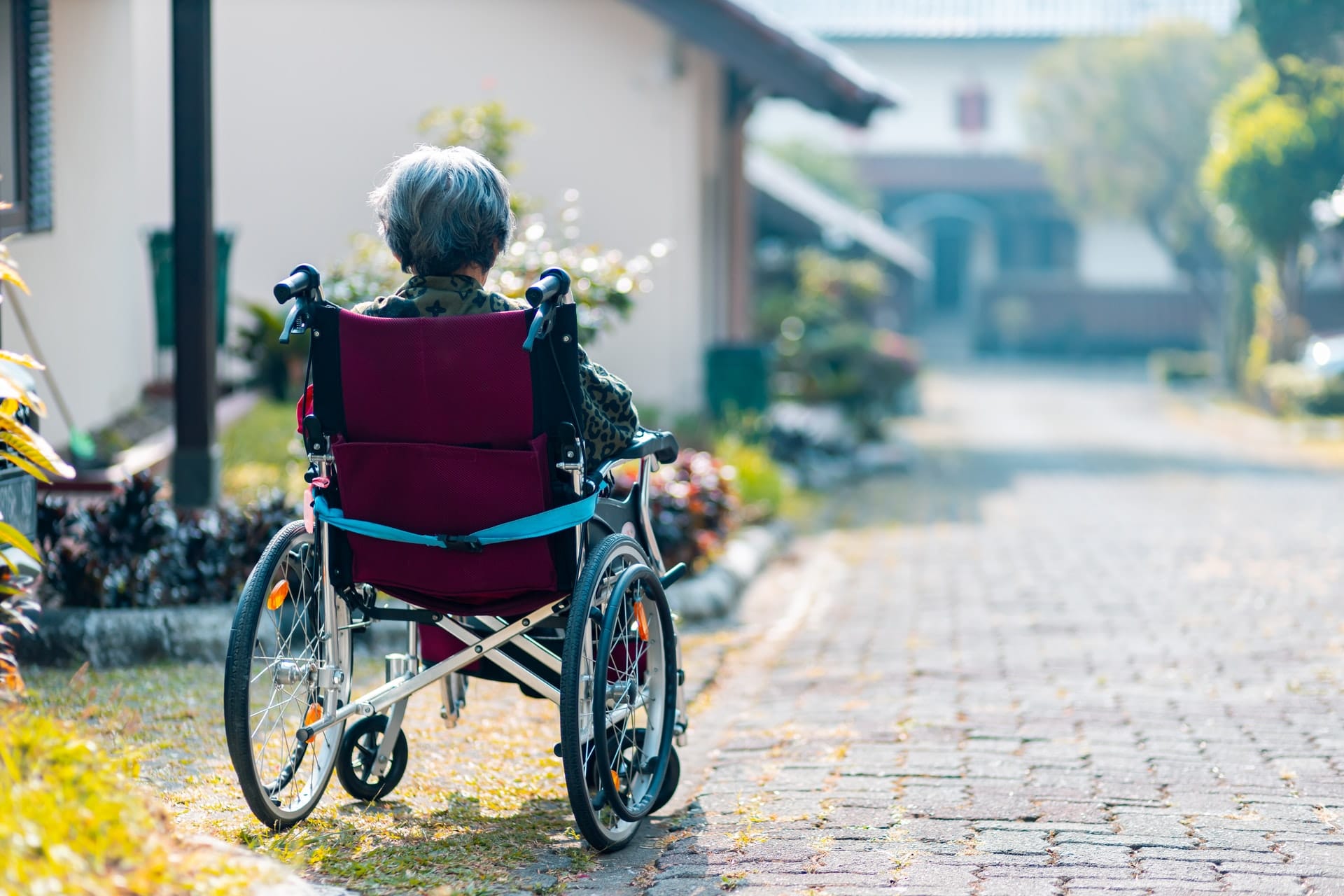
Understanding Terminal Lucidity
This article has been medically reviewed by Dr. Martin Duggan in 2021.
This content is not intended to be a substitute for professional medical advice, diagnosis, or treatment. Always seek the advice of your physician or another qualified health provider with any questions you may have regarding a medical condition.
Terminal lucidity may bewilder loved ones, but it’s a widely reported phenomenon. In essence, terminal lucidity is a moment of mental (and sometimes spiritual) clarity that some cognitively impaired patients experience on their deathbeds.
If you’ve seen this phenomenon firsthand, you know that it can be a bit mystifying. Let’s go over terminal lucidity so that you understand this experience and how best to cope with it.
Answers to common questions about terminal lucidity
First, what is terminal lucidity?
Terminal lucidity, also known as an “end-of-life rally,” is a state of mental clarity that cognitively impaired patients experience near their deaths. Some describe it as temporarily “getting back” their loved ones. While it’s been documented by doctors for 200+ years, it’s still somewhat of a medical mystery.
How long does terminal lucidity last?
It may last minutes, hours, or days. The experience of this phenomenon varies greatly. However, one common characteristic is that it’s temporary. Memory loss or cognitive impairment may return quickly, which may be confusing to loved ones.
What is the experience of terminal lucidity like?
Terminal lucidity is largely anecdotal, which means that every patient’s experience is unique. Some common aspects may include the patient coming out of an unconscious state, recognizing loved ones, having less severe physical symptoms, becoming verbal, or otherwise expressing cognitive abilities beyond their illness.
In addition to unusual mental abilities, some patients also show positive changes in their spirits and appear to have an elated mood. They may even recognize that they’re approaching death and speak to loved ones in a spiritualized way.
Patients experiencing it may even ask to see a specific person or object that gives them a sense of closure or reminds them of the past. If possible, it’s a good idea to seek out this person or object to bring your loved one some joy in their final moments.
Terminal lucidity is sometimes described as the patient temporarily “waking up” from their illness and understanding what’s happening around them. During this phenomenon, some are able to have a moment of closure or peace as loved ones are able to communicate with the patient and say their goodbyes.
Is terminal lucidity a spiritual or supernatural experience?
Terminal lucidity refers to the change to a clear and alert mental state. The reported phenomenon refers to this temporary relief of illness symptoms and nothing more. Therefore, it’s not a spiritual or supernatural experience, though loved ones sometimes interpret it as such. The reason may be because of the lack of knowledge of this experience and the mystifying medical reasons for why it happens. Perhaps in the future, we’ll have more studies and information about why it happens.
Do all patients experience terminal lucidity?
Not all patients will experience it. There’s no hard and fast rule about when and why it happens. Unfortunately, there’s not much data about how common this phenomenon is across terminal patients either.
What should I do if my loved one experiences terminal lucidity?
If your loved one shows terminal lucidity, you should enjoy the moment. While seeing it firsthand can be puzzling, you can make the most of it to share a moment with your loved one. It’s important to recognize that this state of mind is temporary and your loved one’s skills will soon return to previous norms. This experience may also be a sign of approaching death, which is all the more reason to relish the moment.
Causes behind terminal lucidity
What causes terminal lucidity?
Researchers aren’t exactly sure what causes terminal lucidity. The phenomenon hasn’t been fully studied. However, there are several theories about why it occurs.
First, terminal patients often stop treatments and receive only pain medication. This may heighten their senses, as treatments for illnesses such as cancer, often have strong secondary effects on patients’ physical and mental states. Without these treatments, moments of clarity may become possible.
Another theory involves the body’s response to death. While studies haven’t yet confirmed this idea, some researchers theorize that near death, our bodies release a shot of chemicals that enhance and energize a patient’s mental state.
For what conditions has terminal lucidity been reported?
Terminal lucidity has been widely reported across several chronic conditions, including dementia or Alzheimer’s, Parkinson’s disease, tumors, strokes, meningitis, schizophrenia, and other disorders. This isn’t an exhaustive list, but it gives an idea of the type of patients who may experience it. Other conditions may also give rise to terminal lucidity, though they’re not yet reported.
Why is it difficult to study terminal lucidity?
This experience is difficult to study, given its spontaneous nature. It’s also challenging to study because terminal patients aren’t often subjects in research based on ethical grounds. For this reason, medical reports or family anecdotes are often the only records of this phenomenon.
Could terminal lucidity simply be delirium?
Terminal lucidity is often confused with delirium. However, these are distinct experiences. You can tell if a patient is experiencing it because they’re alert and clear-headed, showing insight and comfort. On the other hand, delirium is characterized by agitation, detachment, and disorganized thoughts. Delirium often generates feelings of confusion and anxiety in patients.
Preparing for end-of-life
What are other common end-of-life experiences (ELEs)?
Researchers have found a range of highly subjective but commonly reported end-of-life experiences (ELEs) across dying patients. In fact, one study suggested that the majority of dying patients – up to 88% – experience one or more ELEs. However, this number isn’t yet confirmed by other research.
End-of-life experiences may include waking or dreaming episodes or behaviors that include:
- Seeing/interacting with deceased family members, friends or pets
- Seeing/interacting with religious figures
- Talking about traveling or travel preparations
- Sensory experiences (seeing light or scenery, or hearing music)
- Predicting time of death
- Terminal agitation (feelings of restlessness or agitation)
- Terminal lucidity (change to mental clarity and alertness)
Interestingly enough, these experiences are reported across a range of different cultures. It’s important to note that these episodes and behaviors are highly subjective and still not fully studied by the medical community.
How should I handle or talk about ELEs with my loved one?
Some initial theories about ELEs include that they bring a sense of comfort and closure to the patient’s life. Don’t try to “debunk” or interpret your loved one’s ELE. It’s important to let the patient talk about the experience and simply validate it. Listen and make the most of the moment to connect with your loved one.
How can I prepare for my loved one’s end-of-life?
Preparing for your loved one’s end of life can be emotionally fraught. However, there are some steps you can take to better prepare for these final moments. For example, you may want to get more information about:
Understanding the end-of-life process may help you accept it and better cope with the emotional challenges of saying goodbye to a loved one.
What other resources on senior care are available?
If you’re looking for more resources on senior health topics, you should check out My Caring Plan. It’s a go-to site for all things senior care. There is a myriad of resources about end-of-life, caregiving and senior health in general.
Sources:
- End of Life Experiences What to Expect, Windbridge Research Center, windbridge.org
Related Articles

Elder Law Attorneys: A Comprehensive Guide
If you are someone who is taking care of a senior or has an elderly loved one, you should consider working with an elder law attorney. Though you may not expect it, individuals begin to face new and more complex legal concerns as they get older. Actions that may have seemed trivial when they were […]

When Is It Time for Assisted Living?
Wondering if it is time for assisted living for your loved one is a common question for caregivers. As a caregiver, you might have been considering the question for months or possibly even years. Your loved one might have declined to continue the discussion as the thought of moving out of their family home and […]

All About Adult Day Care: Community and Costs
Adult day care is a fairly new concept for caregivers. The basic idea is to provide a secure place where seniors can enjoy social activities during the day and be provided nursing care as needed. It’s a hybrid model of eldercare that prioritizes community. At the same time, seniors get help with common custodial tasks […]

Respite Care: An Overview
Caregiving can be overwhelming at times. That’s why taking a break is essential for recharging your battery. Respite care, also called short break care, is a way for caregivers to get temporary care for their loved ones so they can take some time to rest. Getting this “me time” of respite care can renew the […]

What is a Mechanical Soft Diet? Explanation, Preparation, and Meal Ideas
This article has been medically reviewed by Dr. Martin Duggan in 2021. This content is not intended to be a substitute for professional medical advice, diagnosis, or treatment. Always seek the advice of your physician or another qualified health provider with any questions you may have regarding a medical condition. As a caregiver, you may […]

Benefits for Seniors with Disabilities
Oftentimes, seniors with disabilities qualify for health and financial assistance programs. However, they may be unaware of them or are confused about the eligibility requirements and enrollment process. Let’s go over the key programs for seniors with disabilities so that you have the information you need to get the benefits you deserve. Note on the 3 […]